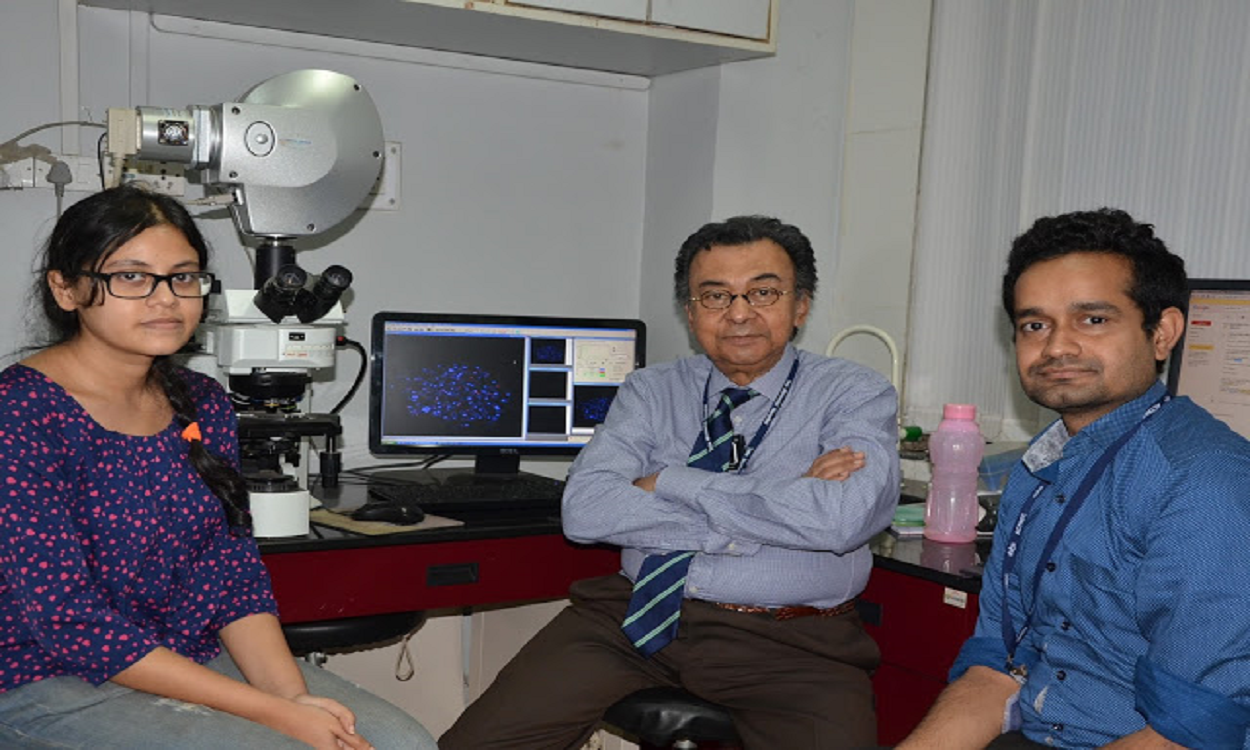
Cell-free chromatin from dying cancer cells may be the fundamental means by which cancer spreads locally and metastasizes systemically.
JUN 28, 2017 | BY RATNESHWAR THAKUR
Across the world, researchers have been trying to develop therapeutics, especially to kill the cancer cells. However, in a recent study it has been shown that left over of dead cancer cells also have potential to spread the cancers, which makes the therapeutic scenario nastiest because most of the available treatments involve killing of cancer cells by various means.
Several hundred billion to a trillion cells die in the body every day and a similar number is regenerated to maintain homeostasis. A considerable amount of fragmented nucleic acids (DNA) from the dying cells enter into the extracellular compartment. Although the liver clears out the nucleic acid debris, however, it has been reported that when tumour cells die, especially after therapeutic interventions, their fragmented chromatin have been detected in circulation. There is much current interest in using the presence of circulating DNA for therapy-response predictions in cancer.
“The motivations for this study came from our earlier findings that circulating nucleic acids, especially circulating chromatin fragments, can get integrated into healthy cell genomes and induce DNA damage and apoptotic responses,” says Prof. Indraneel Mittra, Tata Memorial Centre, Advanced Centre for Treatment, Research & Education in Cancer (ACTREC).
Although the presence of chromatin (DNA) in circulation has been known for a long time, Prof. Mittra’s group were the first to demonstrate that these fragmented particles are biologically active molecules.
Prof. Mittra and his team believe that release of cell-free chromatin from dying cancer cells could integrate into surrounding healthy cells and damage their DNA and induce an inflammatory response. DNA damage and inflammation are potent drivers of oncogenic transformation leading us to hypothesize that cell-free chromatin from dying cancer cells may be the fundamental means by which cancer spreads locally and metastasizes systemically.
This new study challenges the entrenched theory of cancer metastasis that living circulating tumour cells lodge in distant organs and grow to form secondary tumours. “This study is the culmination of over 15-years of research which opens up an entirely new form of biology i.e., that of “DNA outside the cell – a new paradigm in biomedical research,” said the Investigators.
“Our study suggests about re-thinking of the way we treat cancer which is to “kill” cancer cells at any cost. The result may be that the more we kill, the more we may be spreading cancer. Therefore, future research should be focused on destroying/degrading the chromatin fragments that emerge from dead cancer cells thereby preventing further spread,” Prof. Mittra explained about the future perspectives of his finding.
Story Source:
THE HAWK
